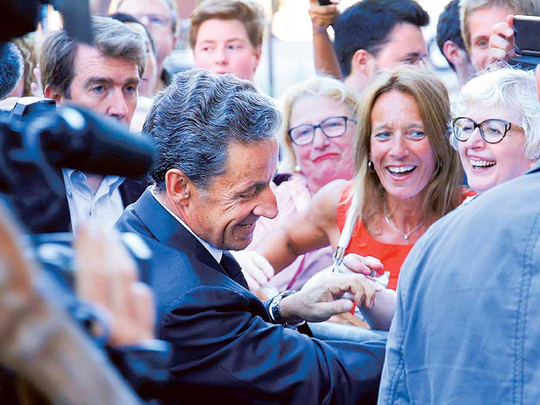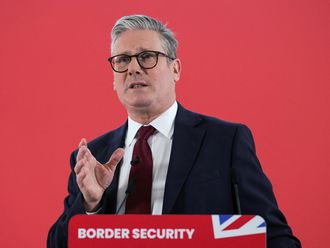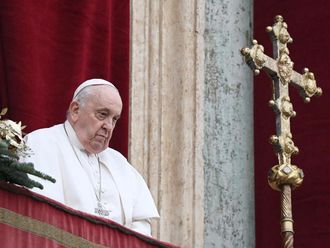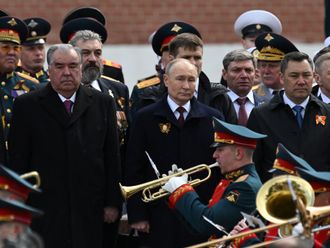
Paris: French President Francois Hollande is one step closer to meeting his preferred challenger in next year’s election: Nicolas Sarkozy.
Hollande’s predecessor said Monday he plans a repeat of the 2012 contest for the French presidency, officially declaring himself a candidate in the Republican party’s primaries. The long-anticipated announcement gives Sarkozy, 61, three months to win over ckeptics in his own camp and overtake the front-runner Alain Juppe.
Polls have consistently shown that the last thing French voters want is a rematch. Yet for 62-year-old Hollande, who has plumbed new lows of unpopularity among French leaders, Sarkozy’s return could be a godsend. It would blunt the usual arguments of renewal and change that challengers use and bolster the president’s centrist pitch; Sarkozy might even approach Hollande’s unpopularity with the electorate.
“Francois Hollande knows he has already beaten him once and just as in any sporting event, that’s a psychological advantage,” said Bernard Sananes, president of pollster Elabe.
“He also believes that the public will have a feeling of been-there, done-that and that he will drive away centrist voters.”
With eight months to go before the first round of the 2017 presidential election, only 17 per cent of voters say they have confidence in Hollande, close to the record low of 15 per cent set in June, according Elabe’s monthly poll taken on August 2 and 3.
Dream scenario
The same survey showed Juppe, a 71-year-old former prime minister, is the country’s favourite politician, with 44 per cent of the 1,000 voters surveyed reporting a positive impression of him. Sarkozy, by comparison, garnered a positive image from just 26 per cent of voters, though that was an improvement from the previous month, especially among right-leaning voters.
In Hollande’s dream scenario, Sarkozy might see off Juppe by appealing to the right without reviving his support from the wider electorate.
The former president’s advance came as he called for a hard line in beefing up security after a terrorist killed 84 people during Bastille Day celebrations in Nice. Sarkozy called for anyone suspected of being a terrorist threat to be thrown in jail, a method rejected by Hollande because it does away with the presumption of innocence and basic democratic freedoms.
Security and identity issues will continue to be a major focus of Sarkozy’s campaign, according to extracts of a book that will be released Wednesday. “Barbarians are attacking us” because they “think we’re weak,” Sarkozy writes in the manifesto, entitled ‘Everything for France’. On Twitter, the candidate wrote: “The next five years will be full of danger but also full of hope.”
“He’s the only one that can both embody safety and experience, while also bringing the audacity,” said former interior minister and Sarkozy confidant Brice Hortefeux said on BFM television.
National Front territory
Following the book launch, the former president plans a rally in Chateaurenard, a south-east France, home ground for Marine Le Pen’s National Front. Polls consistently show that Le Pen will be one of two candidates in the run-off vote next year, something that the anti-euro, anti-immigrant party has only achieved once before, in 2002.
For Elabe’s Sananes, the choice of the south-east underlines Sarkozy’s determination to tack to the right and seek votes from the extreme rather than making a pitch for the political Centre.
“He’s betting that his stature as a statesmen, given the circumstances, will be an advantage, even for those tempted to vote for Le Pen,” he said. “This is an important moment for him. He’s re-mobilising the core of his base and in the polls he has the wind in his sails.”












